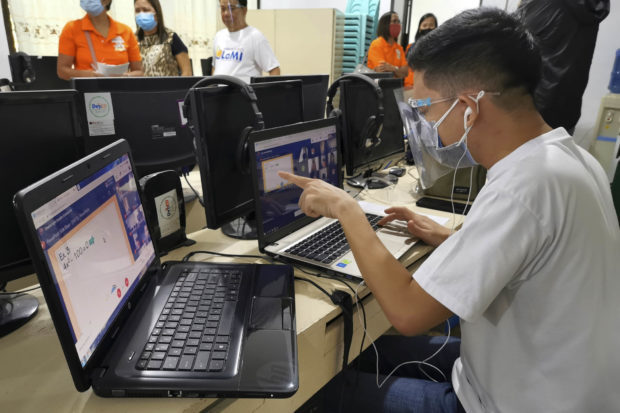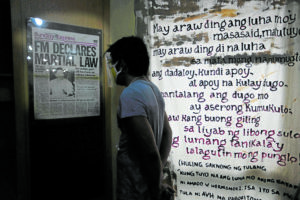
The Department of Education (DepEd) admits that distance cheating has been anticipated even before the COVID-19 pandemic forced schools to transition to remote learning. But the DepEd says “experienced” teachers will be able to determine whether a requirement for class is done by the students. Studying the process by which students produce their outputs rather than their outcome might help. PHOTO BY WILLIE LOMIBAO
MANILA, Philippines — Christine Peregrina always makes it a point to tell her Grade 2 students that it is okay to make mistakes as long as they learn from it, instead of getting good grades through cheating.
The Araling Panlipunan and Filipino teacher at Ateneo Grade School admitted that “distance cheating” — which usually entails falsely submitting an assignment that is actually completed by someone else — was inevitable, especially in distance learning, with teachers unable to personally supervise their students.
The Department of Education (DepEd) admits that distance cheating was already anticipated even before the COVID-19 pandemic forced schools to transition to blended learning.
But the DepEd emphasizes that “experienced” teachers would know if a requirement for class was done by the students themselves.
Jennie Jocson, vice president of the Philippine Normal University, emphasized three approaches in distance learning: giving students ample time to address activities, flexibility in performing tasks, and ensuring that learning is holistic for the learners, especially in basic education.
Diosdado San Antonio, DepEd undersecretary for curriculum and instruction, said: “We are appealing to the parents, grandparents and other significant adults to help the DepEd reinforce the value of honesty. We must not leave this to the DepEd… We are reminding them that having home-based learning is a good opportunity to teach children the right values.”
Peregrina said: “As their second parents, we keep on reminding them about this. It’s already up to them if they will choose to do the right thing or choose to cheat on themselves.”


